17 top EVs to get excited about in 2022
The next 12 months promises to showcase more electric cars than ever before

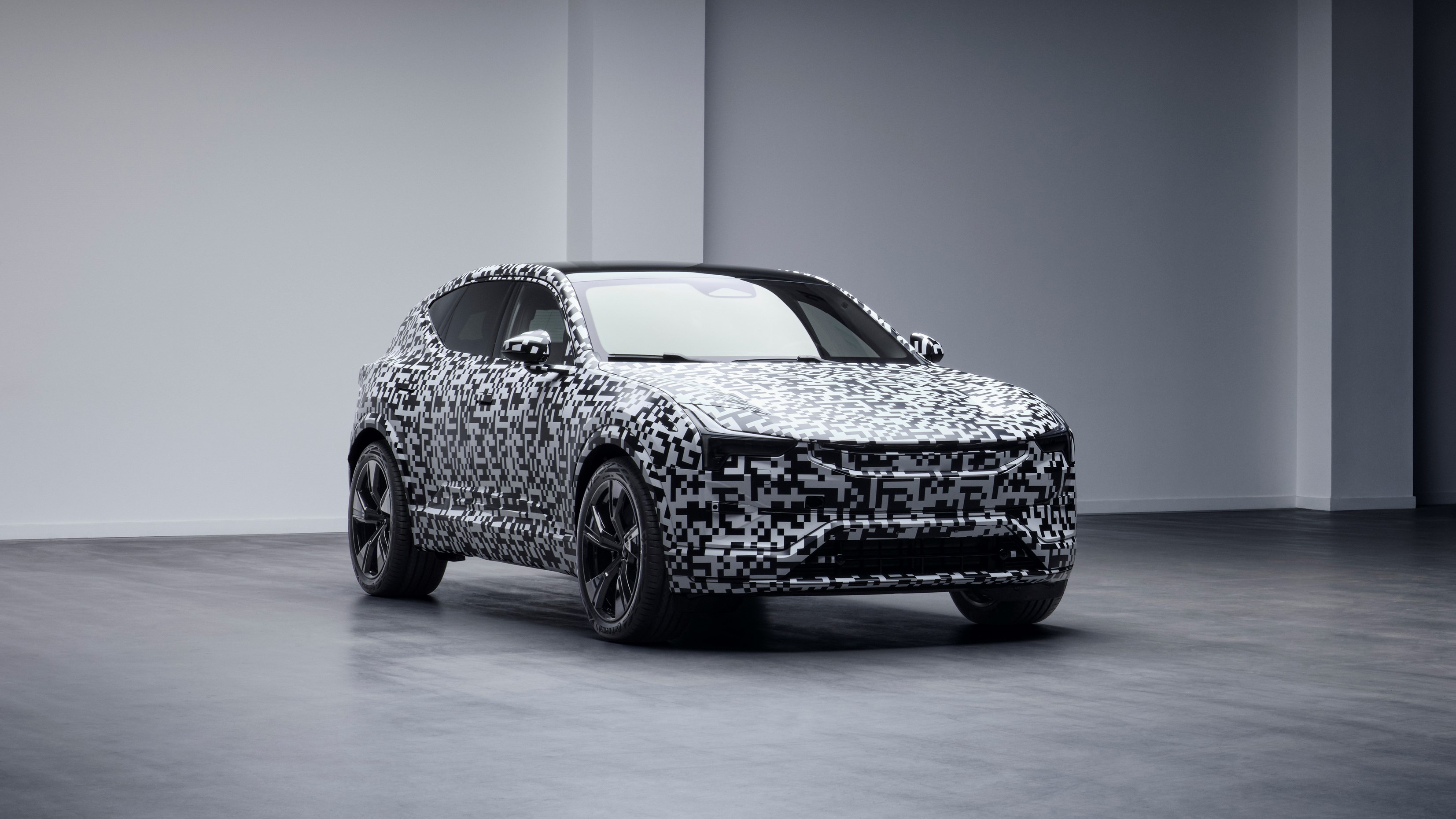
Despite the ongoing global semiconductor shortage and a lack of flagship events like the Geneva International Motor Show, the car industry is set to have a bumper year in 2022 – and that means more electric cars than ever before.
Industry giants like Audi, BMW, Mercedes and Volkswagen will spend 2022 growing their electric car offerings, while startups like Lucid, Fisker and Rivian will take their first steps in pursuit of Tesla. The EV pioneer will also have a busy 2022, with its Model Y and ultrafast Model S Plaid coming on stream. We might even see more of the Roadster sports car, which was meant to arrive back in 2020.
- Best dash cam: top car dash cams tried and tested
- Best car seats: keep your baby or toddler safe
- Best electric scooter: top e-scooters for adults
Electric car prices will mostly remain high through 2022, as manufacturers target the mid- and high-level of the market in a bid to recuperate enormous R&D costs. But there will be some comparative bargains too, like the £25,000 Ora CAT from China.
Here is a brief look at the electric cars to look forward to in 2022.
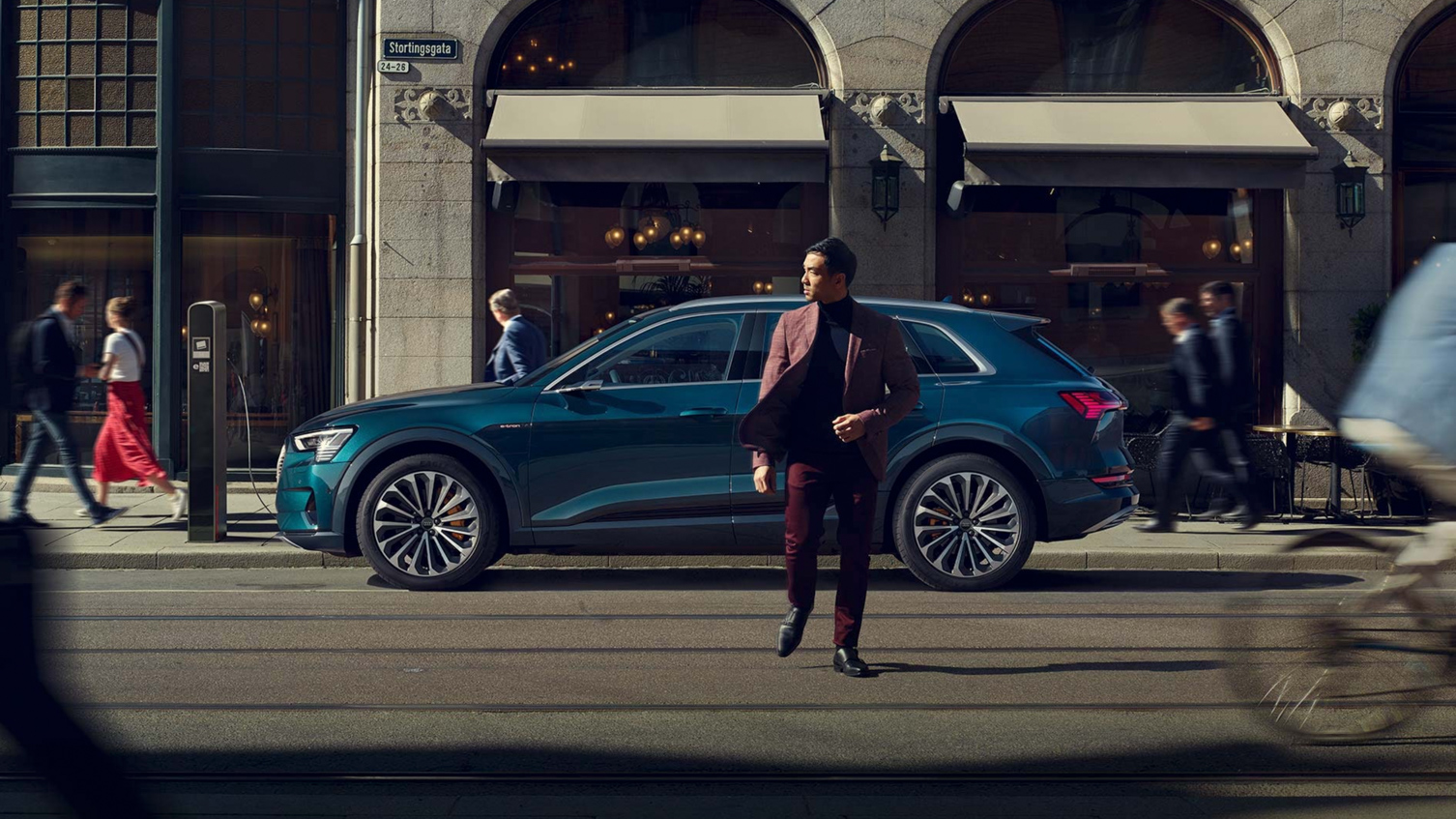
1. Audi Q6 e-tron
Expected to land towards the end of 2022, the Q6 e-tron will be a mid-size electric SUV that shares its underpinnings with an upcoming electric version of the Porsche Macan. The battery pack is expected to be in the region of 90 to 100kWh, with a range somewhere around 300 miles, making it a close rival to the Jaguar I-Pace and BMW iX3.
Just like the related Audi e-tron GT and Porsche Taycan, the Q6 e-tron is expected to have an 800V electrical system allowing for super-fast 350kW charging, filling the battery from almost empty to 80 percent in under 20 minutes. As long as you can find the right charger, of course. To fall just below the electric Macan, the Audi is expected to cost around £55,000. The car is likely to borrow much of its design from the larger E-tron SUV, pictured above.
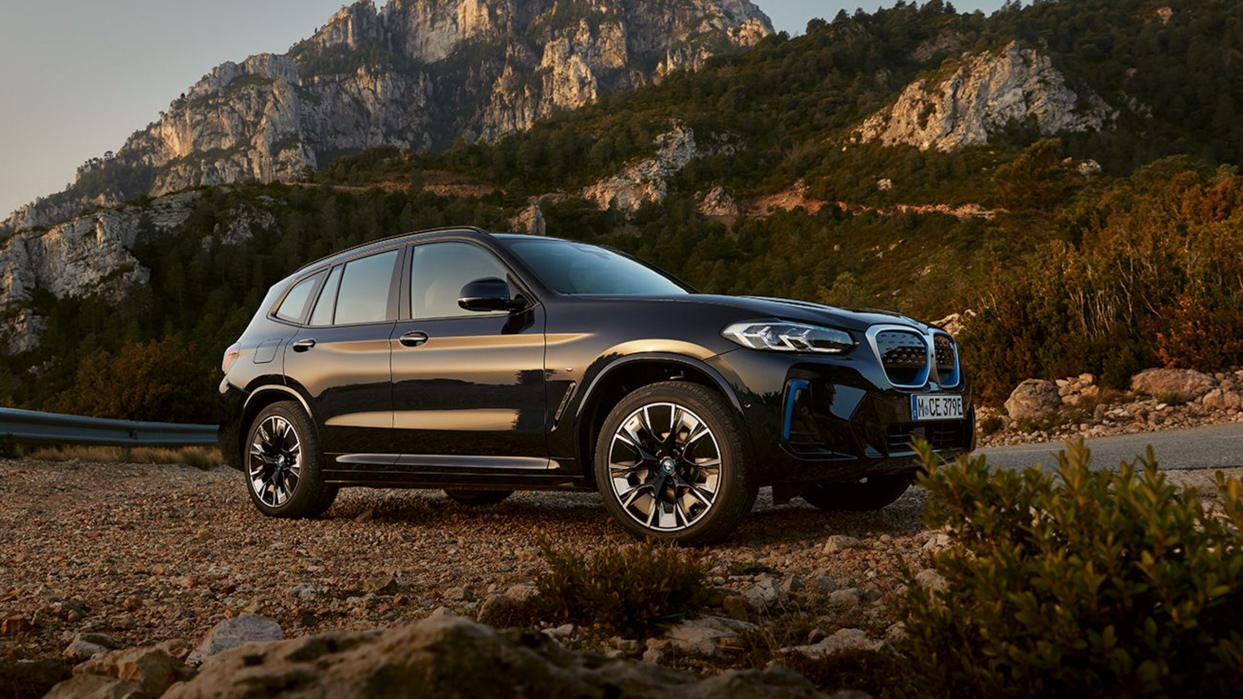
2. BMW iX1
With the i3 not getting an immediate replacement, the iX1 will become BMW’s entry-level electric car when it arrives in 2022. Essentially an electric version of the X1, in the same way the iX3 (shown above) is an electrified X3, the new car is expected to be offered with battery size options of 38 and 74kWh, producing a respective range of approximately 120 and 240 miles.
Get all the latest news, reviews, deals and buying guides on gorgeous tech, home and active products from the T3 experts
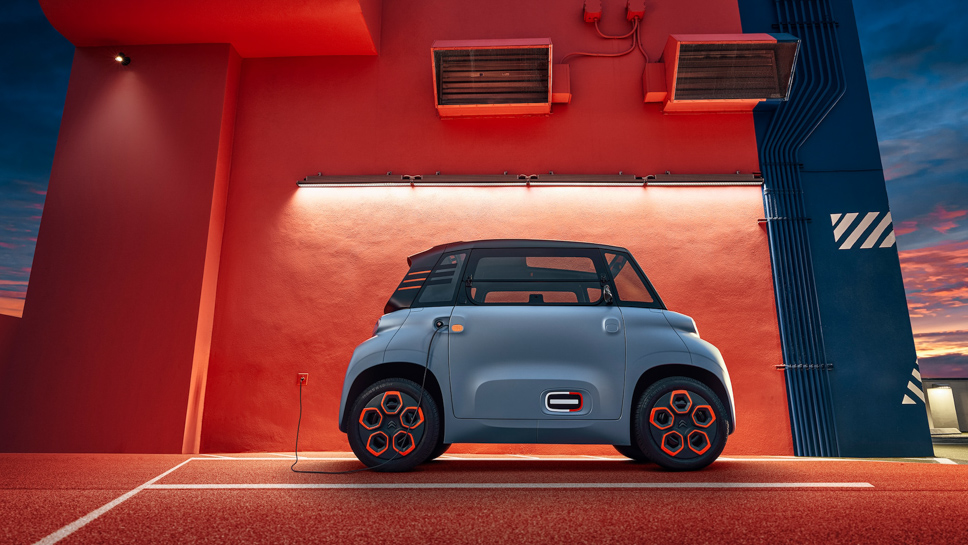
3. Citroen Ami
More a quadricycle than a car, the Citroen Ami is a tiny EV designed for city driving. It is just 2.41m long and has a battery so small that it can be fully charged from a domestic three-pin socket in three hours. Range is a modest 46 miles and the Ami has a top speed of just 28mph, but for occasional journeys in congested cities it makes a lot of sense.
The Ami is expected to be priced from just £6,000 in the UK, and to also be offered by subscription – as it is in France for €19.99 a month.
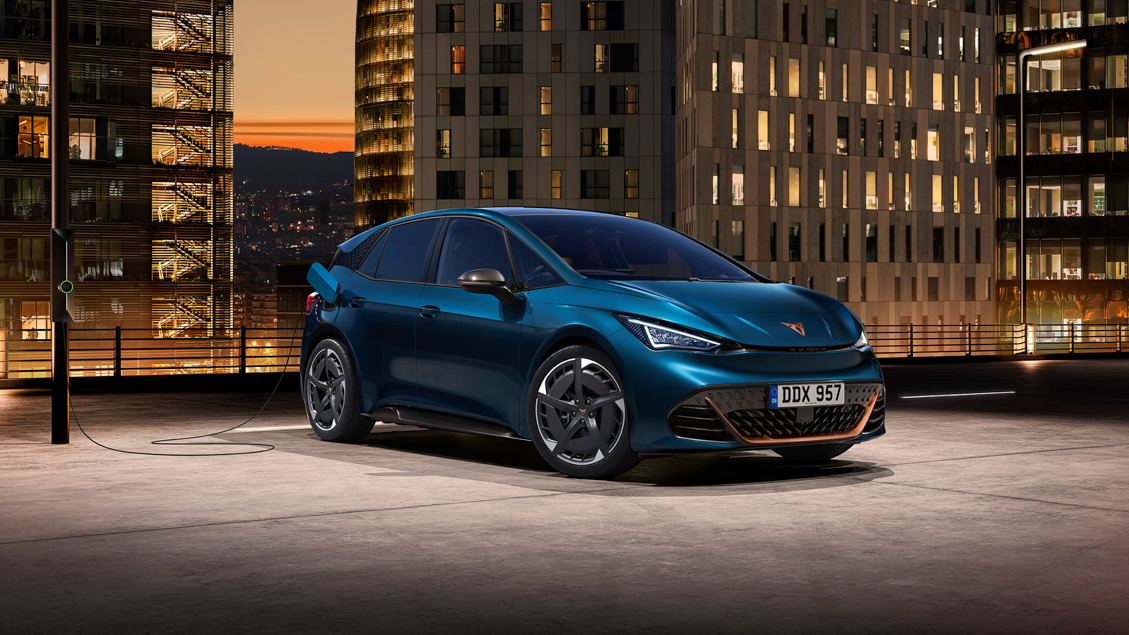
4. Cupra Born
This is the first bespoke electric car to come from Seat-spinoff Cupra, and follows the Formentar, which was available in hybrid and full-EV variants. A middling 200-horsepower version of the Born will come first, with a 58kWh battery and a claimed WLTP range of 263 miles. This will be followed by a model with 231bhp and the option for a larger 77kWh battery with a range of 335 miles.
Technology includes a 12-inch infotainment display, joined by a 5.3-inch digital driver display. A charge speed of up to 125kW means the larger battery pack can be filled from five to 80 percent in 35 minutes. Prices start at just under £34,000.
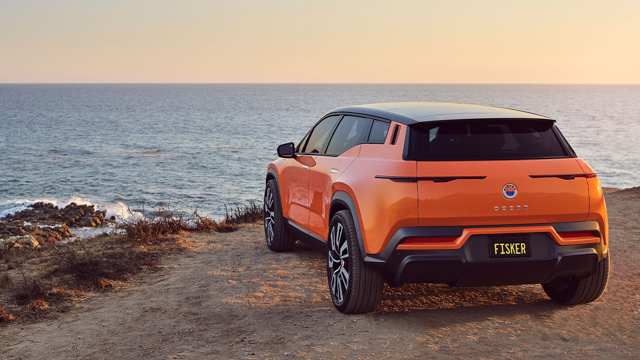
5. Fisker Ocean
US startup Fisker will bring its first EV, called the Ocean, to market in 2022. An SUV, the Ocean will be offered with a number of battery pack and performance options, with range climbing from 250 miles with the Ocean Sport, to a claimed 350-plus miles with the dual, motor, all-wheel-drive Ocean Extreme.
That same model will produce 550bhp and have a 0-60mph time of a supercar-embarrassing 3.6 seconds, Fisker says. One interesting feature is called Hollywood Mode, and is where the 17.1-inch infotainment display rotates from portrait to landscape, ready for the occupants to want a film while parked at a charger. Sound will come from a powerful 16-speaker, 500-watt sound system.
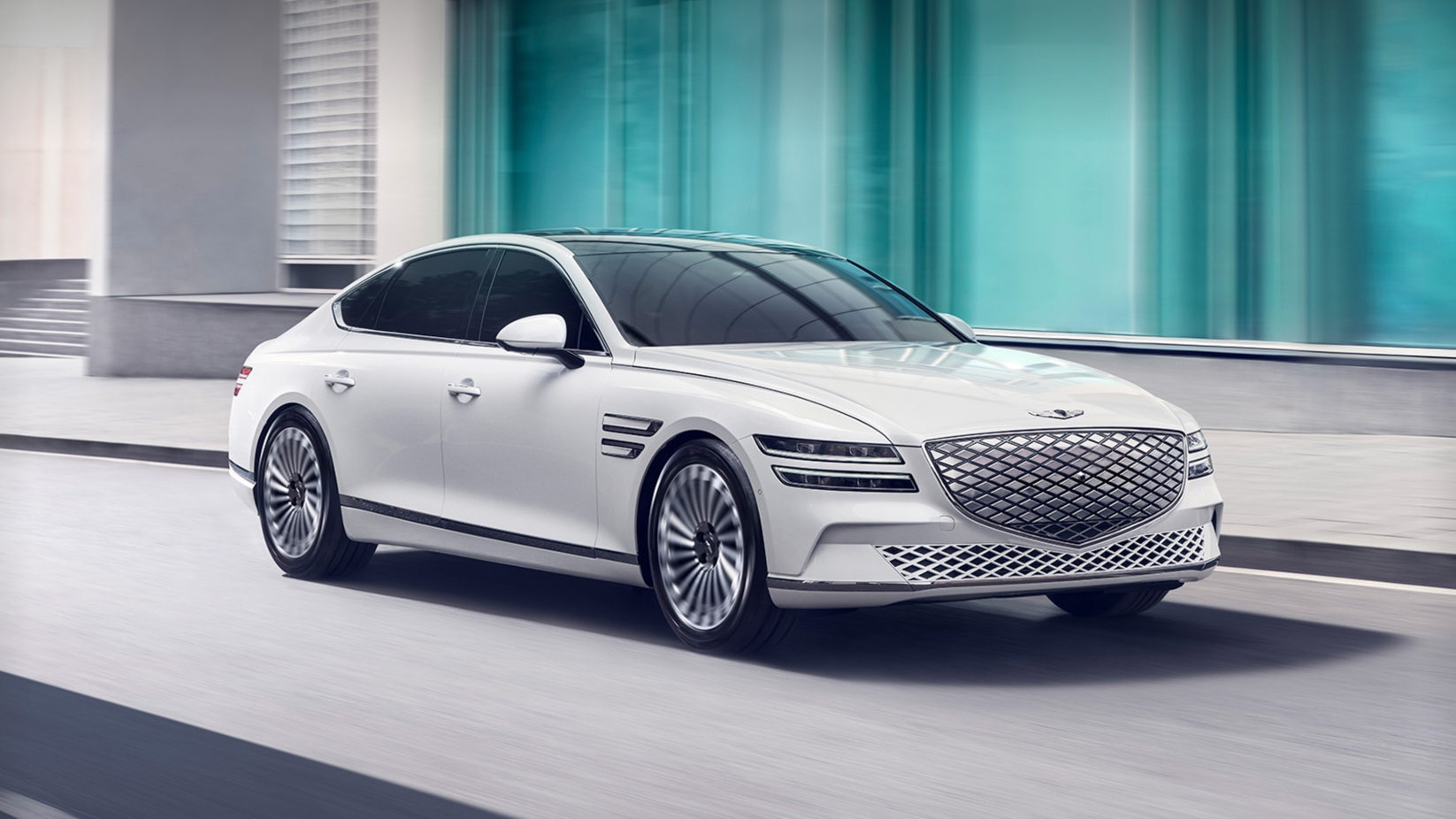
6. Genesis Electrified G80
As the name suggests, this is a battery-powered version of the G80, which comes from Genesis, a new luxury brand from the Hyundai Motor Group. Visually almost identical to a petrol-powered G80 that launched in 2020, the electric model has a claimed range of over 300 miles and an 800-volt system architecture that enables super-fast charging of up to 350kW.
Like the Kia EV6, the Genesis has V2L (vehicle to load) technology that can be used to power a broad range of domestic appliances and even top up the battery of another electric car. Tech includes active noise canceling to create a quieter cabin, and a large, centrally-mounted widescreen infotainment system.
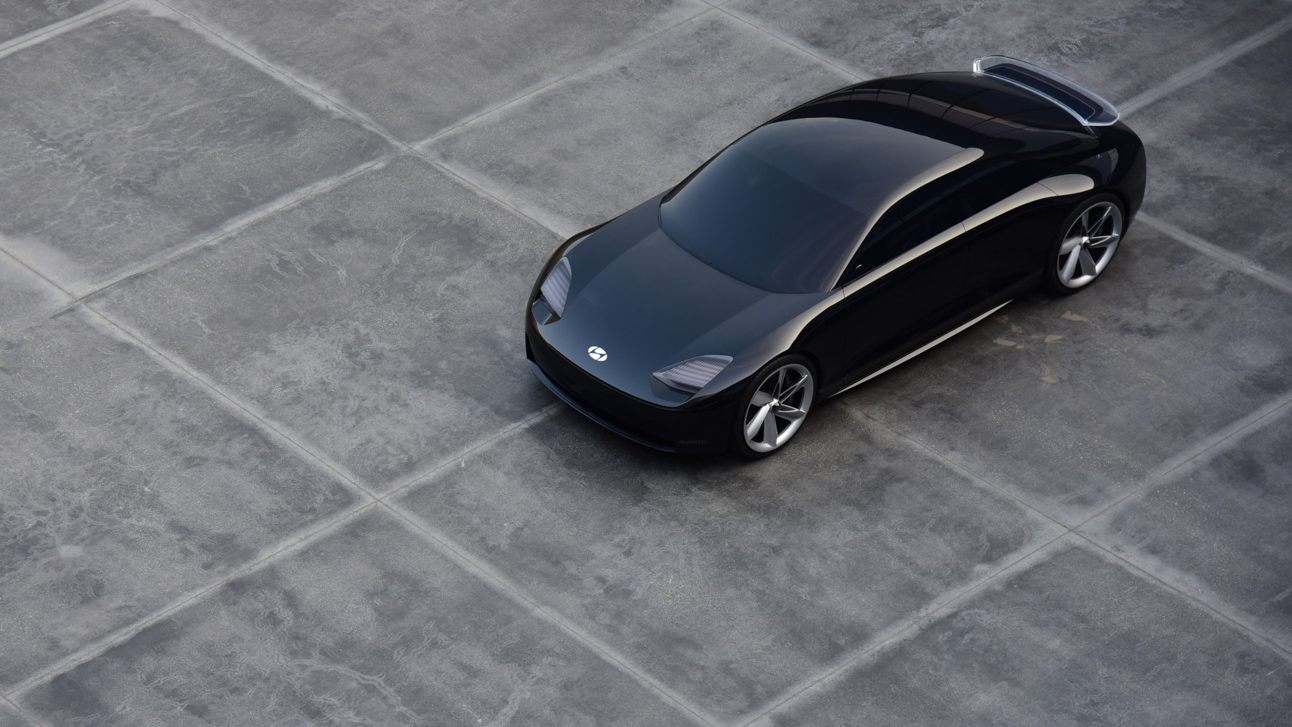
7. Hyundai Ioniq 6
The second installment in Hyundai's all-electric car brand will be called the Ioniq 6, and based loosely on the company’s Prophecy Concept of 2020, pictured above. Due out in the middle of 2022, it is to be fitted with a large, 77.4kWh battery pack good for a range of over 300 miles. We expect to see the Ioniq 6 take on the Tesla Model 3 in terms of price and practicality, although the American car will surely have the upper hand when it comes to performance.
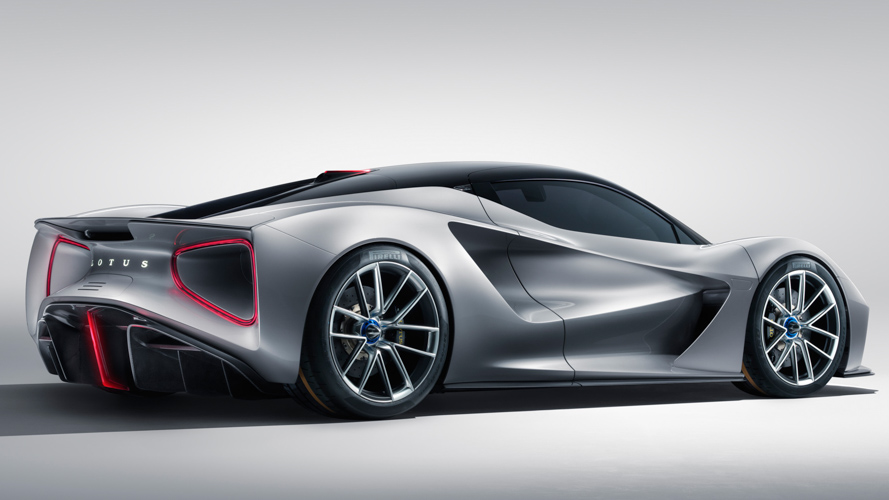
8. Lotus Evija
Next year will see Lotus begin delivering the £2m Evija hypercar to its 130 lucky customers. Proof that electric cars can look just as good as internal-combustion ones, the Evija produces an astonishing 2,000 horsepower from its quad-motor drivetrain – a stat that means each wheel is more powerful than any previous road-going Lotus.
Lotus is keeping the Evija’s performance figures vague for now, stating a 0-60mph time of under three seconds and a top speed of over 200mph. But one stat has caught our eye, which is a 0-186mph (300km/h) sprint time of just nine seconds. Lotus is targeting a range of 215 miles and says the Evija will be the world’s lightest electric hypercar, at 1,680kg.
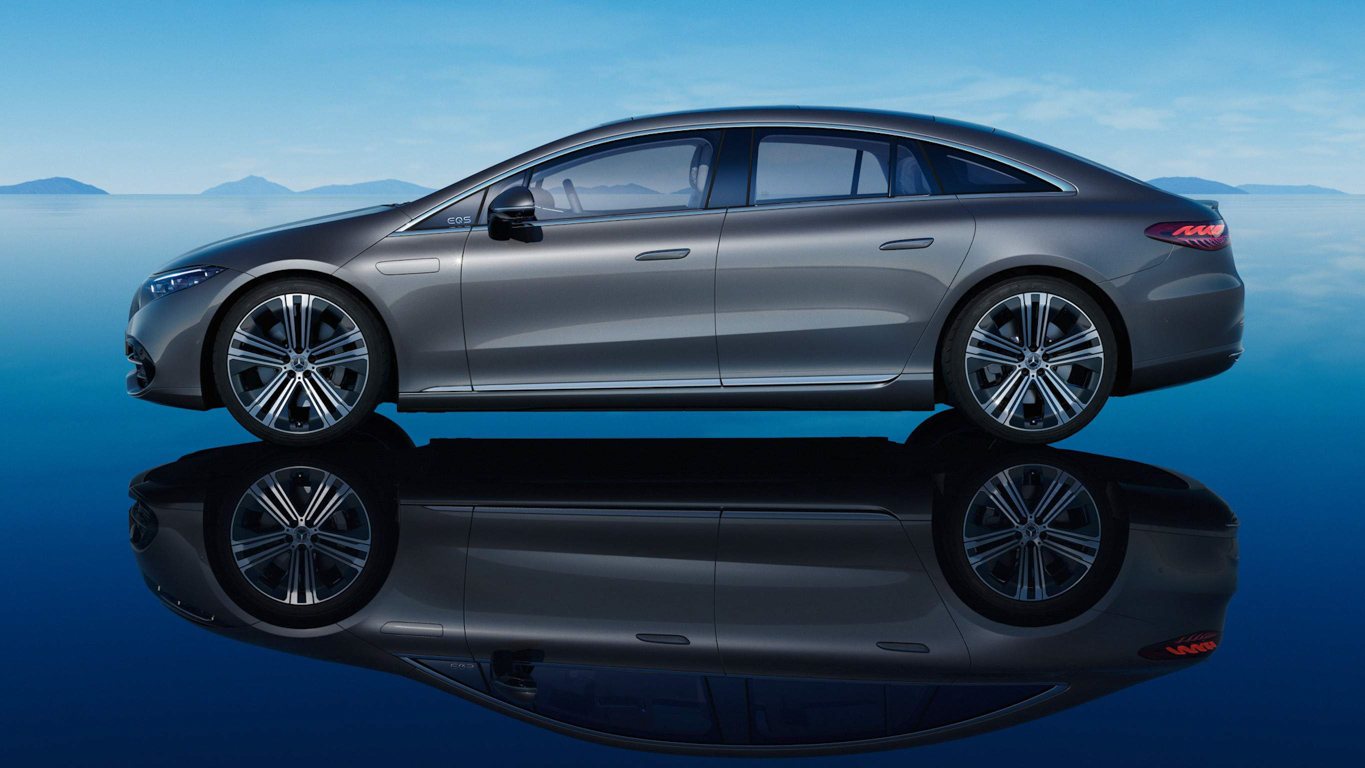
9. Mercedes EQS
To be the flagship of the electric EQ range from Mercedes, the EQS is essentially what happens when the S-Class luxury limo is redesigned for an electric world. Claimed range from the large 107.8kWh battery is an equally huge 484 miles, while power outputs range from 325bhp to over 500, although the latter isn’t due to be sold in the UK.
The interior is dominated by the optional Hyperscreen, which is a collection of OLED displays set behind a 1.4-metre glass panel occupying the entire dashboard. Powering the Hyperscreen is an eight-core CPU with 24GB of RAM.
When connected to a 200kW charger, the EQS can suck up 186 miles of range in under 20 minutes, Mercedes says. AN AMG version will also be available, with a 0-62mph time of 3.4 seconds, 0.4sec quicker than the entry-level EQS. Prices start at £100,000 and are likely to extend beyond £170,000 if you tick every box on the AMG order form.
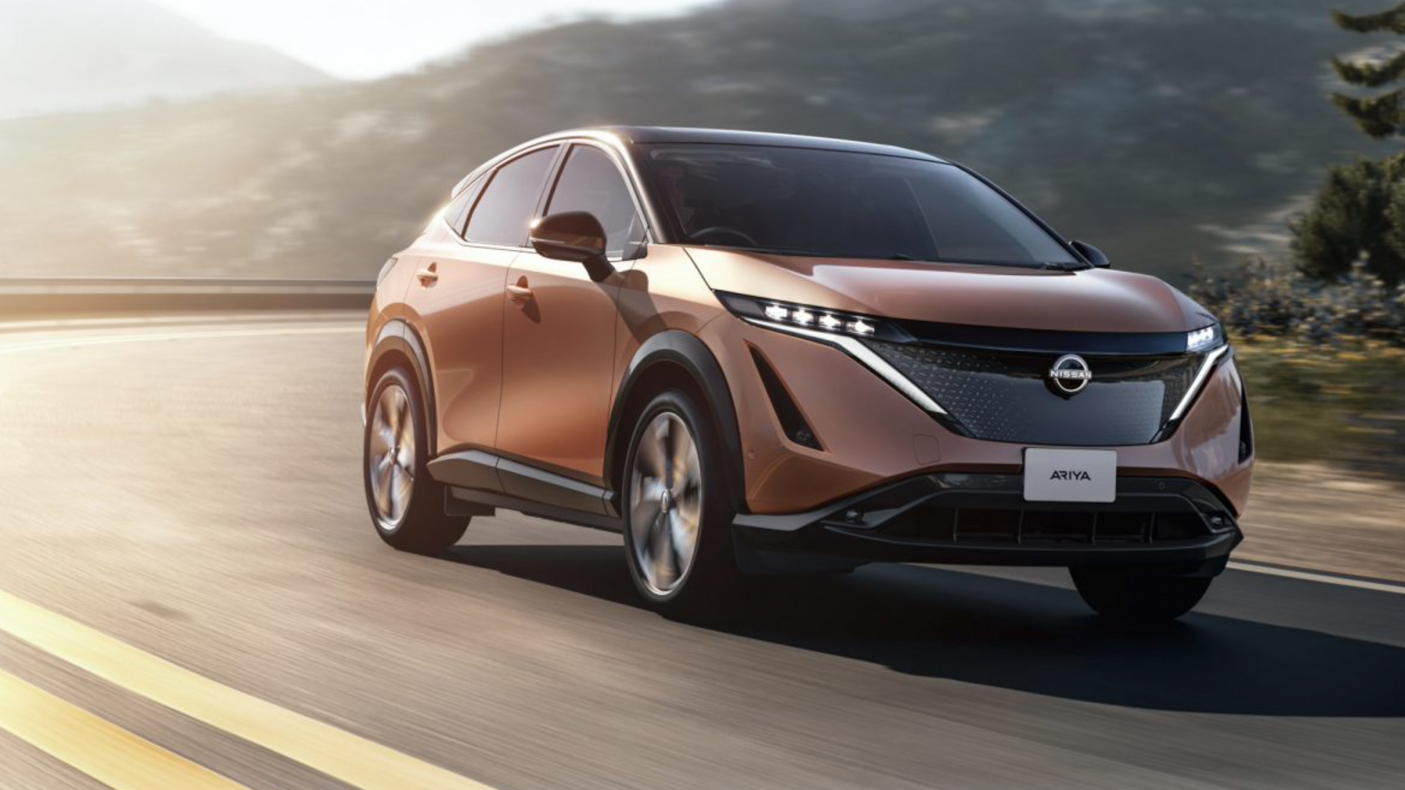
10. Nissan Ariya
Nissan’s second electric car, and to be the flagship of the range, the Ariya is due out in 2022. Up to 310 miles of range is on offer, while a performance model will produce 389bhp. The Ariya will go up against the Volkswagen ID.4 and prices are to start from just under £42,000.
Battery capacity options include 63kWh and 87kWh, with range for the former being a claimed 223 miles. Almost exactly the same size as the ID.4, the Ariya retains the futuristic styling of the concept revealed in 2020, while the interior features a pair of large touchscreen displays on the dashboard, which is quickly becoming par for the EV course.
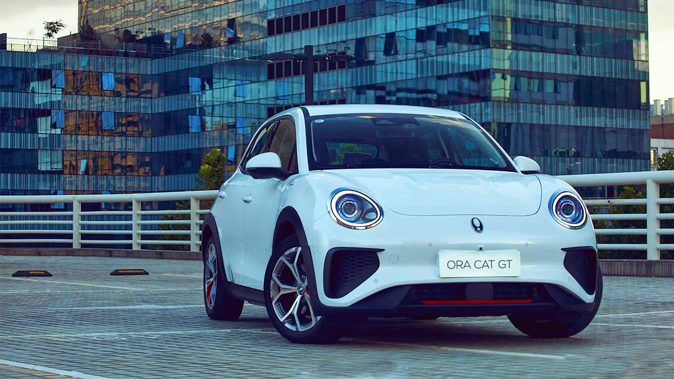
11. Ora Cat
The Ora Cat from China is tipped to be one of the cheapest electric cars of 2022 (Citroen Ami notwithstanding). A compact hatchback, the Cat is to be priced from just £25,000 in the UK, yet promises an impressive range of 209 – or around double that of the similarly priced Mazda MX-30, or the pricier Honda e and Mini E.
A £28,000 version of the Ora Cat, equipped with a larger 63kWh battery, promises 261 miles of range. Both cars can charge at up to 80kW when connected to a CCS fast charger, and the 169bhp motor is good for a 0-62mph time of 8.5 seconds.
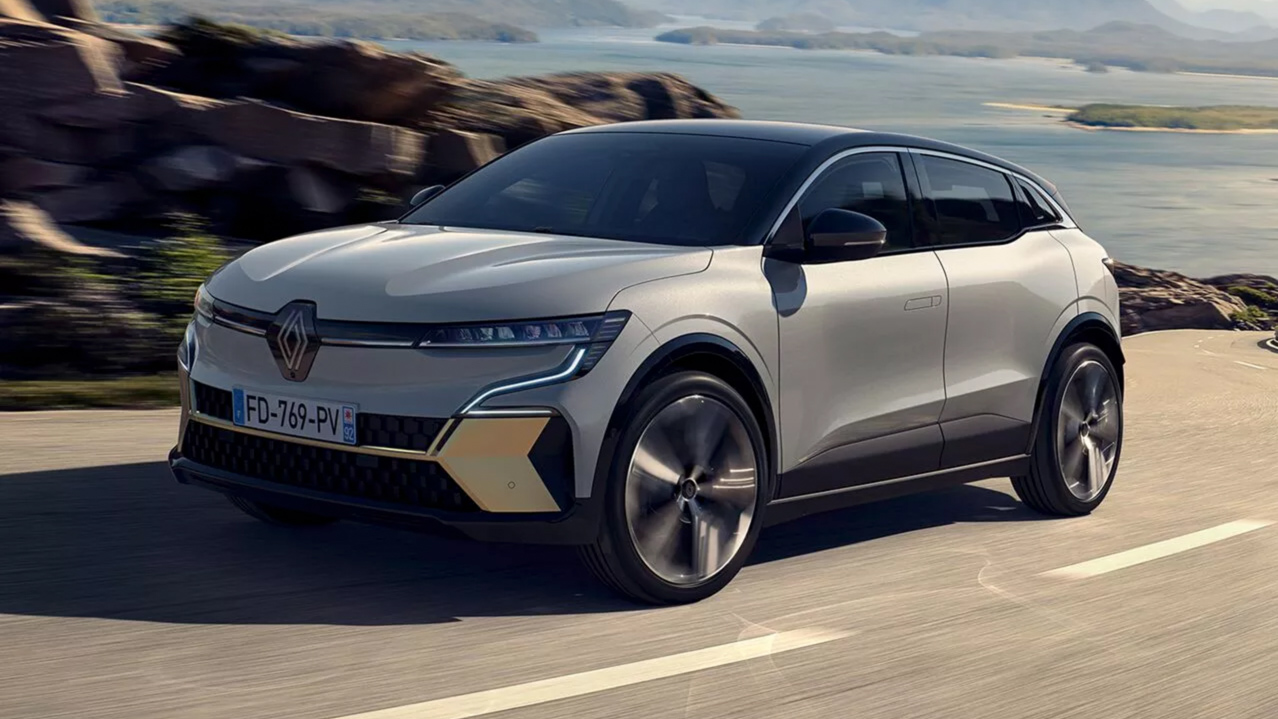
12. Renault Megane E-Tech
Renault is expanding its EV offering in 2022 with the all-new Megane E-Tech. To go up against the Volkswagen ID.3, the Megane is offered with 40kWh and 60kWh battery sizes, which translate into estimated range of 186 and 292 miles respectively. Renault is particularly proud of how thin the battery pack is, and at 110mm this means the occupants don’t sit any higher than in the previous-generation, internal combustion-powered Megane.
Inside, the expected two-screen infotainment system is joined by a set of physical controls, while the overall appearance is that of a car heading up-market. Prices have yet to be confirmed, but you can expect to spend in the region of £35,000 to £40,000.
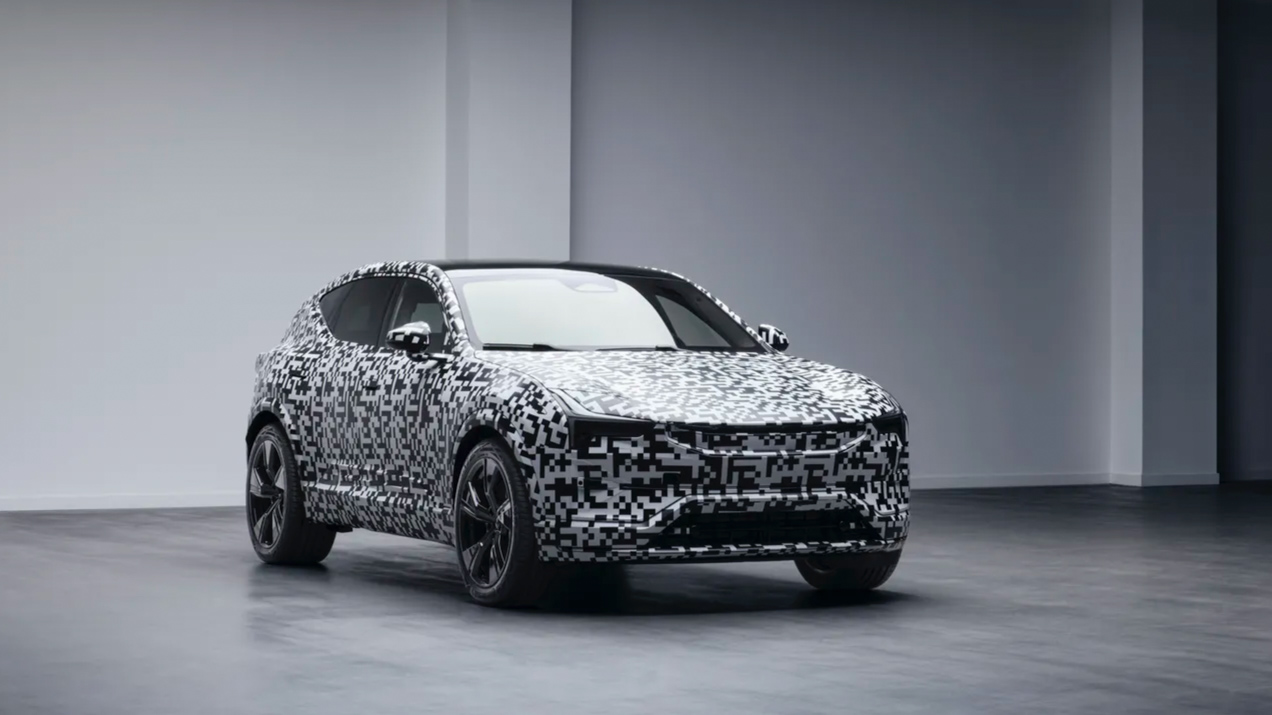
13. Polestar 3
Polestar’s third car is expected to be an electric SUV with design details borrowed from the company’s Precept concept car. All the Swedish company has shown so far is a teaser image of the Polestar 3 hidden beneath a sheet. The image shows a relatively tall vehicle, but with pronounced shoulders and a sloping roofline.
The car is expected to use similar battery and motor tech to the Polestar 2, and have a range in the region of 300 miles. Also imported from the 2 will be its Android Automotive system, complete with Google Assistant, Google Maps, Play Store and Spotify.
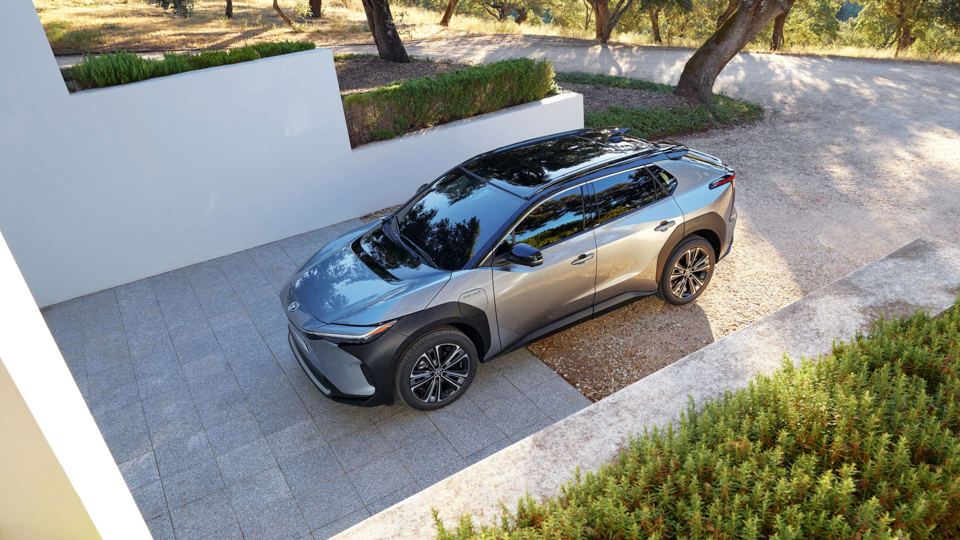
14. Toyota bZ4X
The bZ4X is Toyota’s first battery electric car, and shows the company is keen to explore clean fuel options beyond its hydrogen-powered Mirai. With a striking design remarkably unchanged from the concept shown a year earlier, the bZ4X is the first of at least 15 electric cars to fit into the company’s bZ (or Beyond Zero) range between now and 2025.
There will be two versions of the bZ4X, comprising a single-motor, front-wheel-drive model with 201bhp and a 0-62mph time of 8.4 seconds, and a dual-motor, all-wheel-drive car with 214bhp and a slightly quicker, 7.7-second sprint time. Range from the 71.4kWh battery pack is expected to be more than 280 miles, and there’s 150kW charging for fast top-ups. A solar panel on the roof helps to fill the battery too, and should come in handy in cold climates where lithium batteries operate less efficiently.
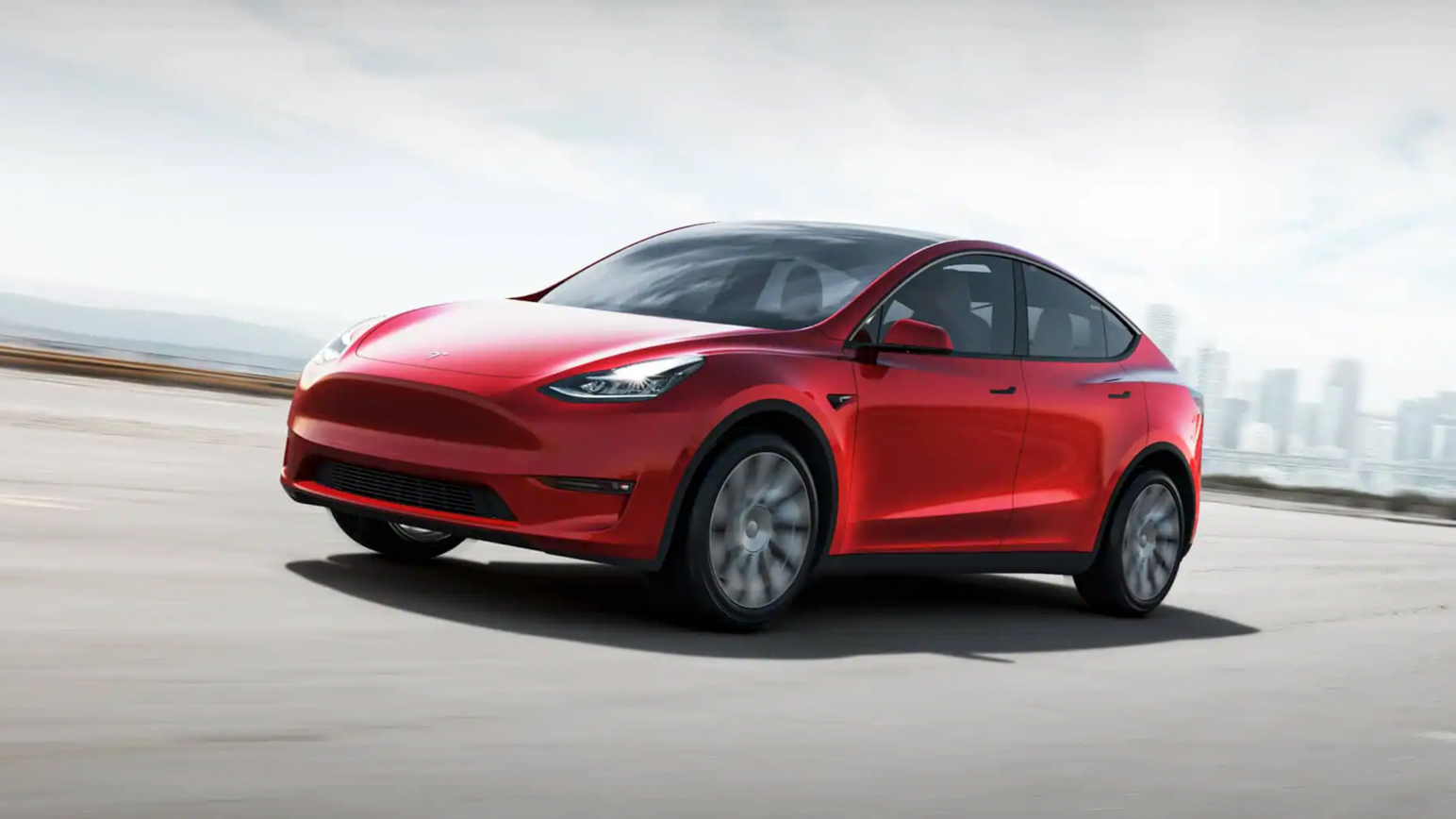
15. Tesla Model Y
Already available in the US and some parts of Europe, 2022 will see the Tesla Model Y roll out into the UK. If the popularity of the Model 3 on which it’s based is anything to go by, then taller and roomier Model Y will be a common sight on Britain’s roads in no time.
Setting the new car apart from the Model Y, other than a more spacious cabin, is a large rear hatchback for easier access to the boot, and a larger storage space under the bonnet too. Range is a little down on the 360-mile Model 3, at 315 miles for the Model Y Long Range.
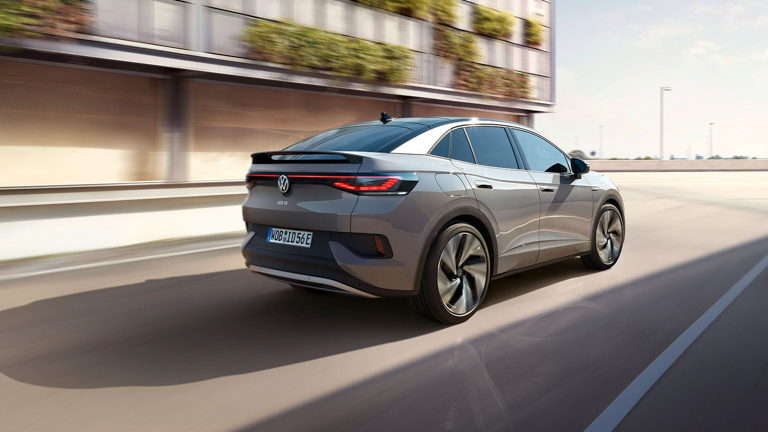
16. Volkswagen ID.5
Following on from the ID.3 and ID.4, Volkswagen’s third purpose-built electric car will land in 2022. The ID.5 is VW’s largest EV to date, taking on a family-friendly, mid-size SUV form and to be priced from around £47,000. A 77kWh battery pack offers a claimed range of up to 323 miles, while a maximum charge rate of 135kW will see a charge to 80 percent completed in under 30 minutes.
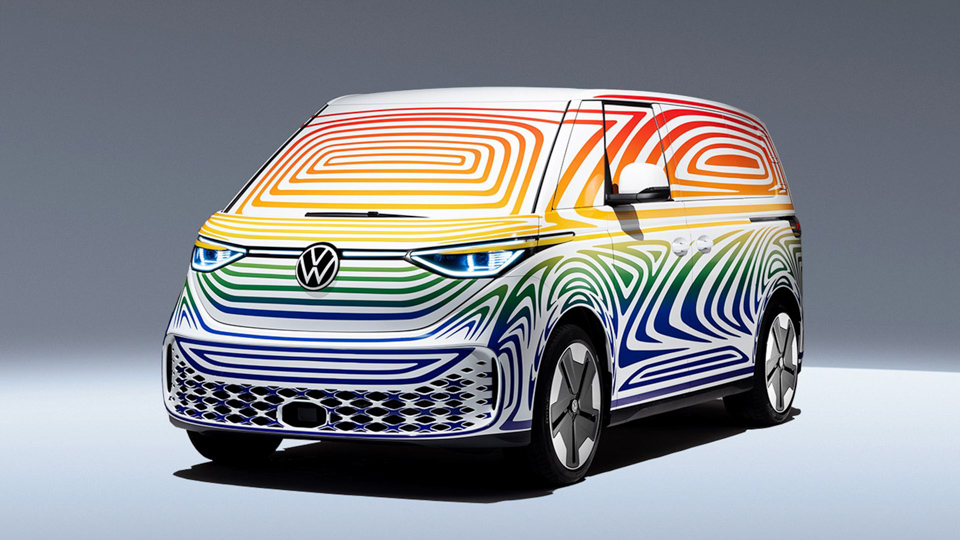
17. Volkswagen ID.Buzz
This will finally be the year in which Volkswagen puts its ID. Buzz minivan into production. First revealed as a concept inspired by the original VW Microbus of the Seventies, the ID. Buzz’s retro details have been toned down ahead of mass production, but we’re still excited to see exactly what it’ll look like.
The ID.Buzz will be offered both as a passenger and commercial vehicle, with short- and long-wheelbase versions too, albeit with the latter coming a year later, in 2023.
Alistair is a freelance automotive and technology journalist. He has bylines on esteemed sites such as the BBC, Forbes, TechRadar, and of best of all, T3, where he covers topics ranging from classic cars and men's lifestyle, to smart home technology, phones, electric cars, autonomy, Swiss watches, and much more besides. He is an experienced journalist, writing news, features, interviews and product reviews. If that didn't make him busy enough, he is also the co-host of the AutoChat podcast.
